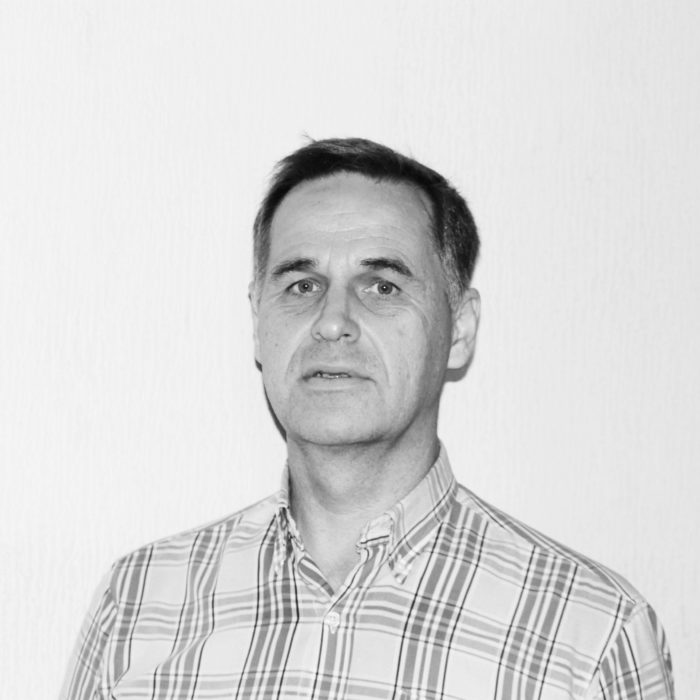

Thanks to broad civic education, Ukrainians are now prepared to self-organise, know how to deal in diverse practical situations, use social media and critically evaluate information, Oleg Smirnov believes. Image credit: Shutterstock
Thanks to broad civic education, Ukrainians are now prepared to self-organise, know how to deal in diverse practical situations, use social media and critically evaluate information, Oleg Smirnov believes. Image credit: Shutterstock
Oleg Smirnov from the Ukrainian educational NGO IDCIR talks about their work supporting citizens caught in a war.
The Russian invasion in Ukraine has drastically changed life in Ukraine. Potentially thousands of civilians have already died in the war, and millions of refugees have fled the country.
However, many Ukrainians have remained in the country, mobilising to protect their country and help each other.
Via email, we managed to talk to Oleg Smirnov, who works for the Ukrainian NGO Integration and Development Centre for Information and Research (IDCIR).
IDCIR focuses on the promotion of innovative approaches to intercultural and peace education. The organisation’s mission is to promote the development of an open civil society and democratic relations mainly through formal and non-formal education of children and adults.
Several members are actively involved in the informational sphere of the war, exposing fake news and disinformation in social media.
In addition to his work at the IDCIR, Smirnov is the country director of the German Adult Education Association, DVV International, in Ukraine. He is also a member of the executive board of EAEA, the European association for the education of adults.
Smirnov, together with his wife and son, are staying in the country’s capital Kyiv.
“There are many people around us who stay here in Kyiv consciously trying to help other citizens, particularly the seniors, disabled people, or the army. People are also supporting those who have left their homes elsewhere in the country.”
Smirnov is deeply worried for his relatives in the city of Mariupol, which is besieged by the Russian troops. He has not been able to contact them since March 1st.
Despite the situation, IDCIR is still operating. What kind of work are you able to do at the moment?
Currently, we have a vast network of members in all regions of Ukraine. The team has conducted several joint online meetings to discuss what kind of help is required in the different areas.
Main activities initiated during the first days of the Russian invasion were psychological support to teachers and broader communities, mainly in areas affected by military actions. Several team members are involved in communication with foreign organisations and getting humanitarian help to the country.
We also try to respond to and help families with children moving to the western regions of Ukraine or other countries around the world. Several members are actively involved in the informational sphere of the war, exposing fake news and disinformation in social media.
When it comes to DDV International, I am worried for the nine partner organisations, ALE centres, we have throughout Ukraine. One is on the occupied territory in Melitopol, and people there are in danger. One of the founders of the centre there was arrested on Sunday 12th March. We haven’t heard from him since.
IDCIR works to promote a strong civil society and democracy in Ukraine. How do you think this work has been visible in the past weeks?
To me, a strong civil society in Ukraine is one of the last decades’ achievements that plays a significant role now. People are prepared to self-organise, have communication skills, they know how to deal in diverse practical situations, use social media, and critically evaluate information. I think this is the result of several factors.
My main message to all those working in the field of adult education is finding channels to inform and educate the citizens of Russia.
Authorities on national and local levels understand the role of activist groups in building a strong state. The reform of decentralization since 2015 has influenced the transfer of responsibilities from official structures to local communities.
The role of local activists’ group, united in civil society organisations (CSOs), in contributing their knowledge and skills for this change, has been immense. We can rely on young people who are more critical, demanding, ambitious and result oriented.
At the same time, many international projects have supported the diversification of CSOs activities. If you look at the list of CSOs with the aim to develop democratic civil society, you will be impressed. It is not just a declaration for most of them but real everyday work on different levels of community life.

Oleg Smirnov works for the Integration and Development Centre for Information and Research.
Civil society development has also been supported on a legislative level. One essential development, I believe, has happened in people’s understanding of their own identity as a citizen. This is linked to national and cultural identity, respect for other cultures and ethnic groups, ability to preserve Ukrainian traditions and understanding the importance of national memory and its impact on socio-political processes.
What message would you like to send to adult education organisations across Europe?
Being in a stressful state and feeling the war around me, it isn’t easy to talk about education as a process that is essentially very long and requires painstaking everyday work.
We are witnessing the results of people being deprived of access to open discussion and cultivating the key values of society: democracy, freedom, responsibility and partnership. This leads to limited knowledge, spreading lies and following the values of power and aggression.
Perhaps my main message to all those working in the field of adult education is finding channels to inform and educate the citizens of Russia.
Our efforts should be aimed at cultivating values that allow people to find ways of self-realisation and opportunities for integration into wider society; to ensure their resilience against other challenges such as corruption, intolerance and ecological issues.
Integration and Development Centre for Information and Research (IDCIR)
- Registered in 1997 in Simferopol. Since 2014 the IDCIR has been based in Kyiv and works all over Ukraine.
- The NGO is part of the international network of organisations working in the field of training for a culture of peace and conflict resolution (INCREPE), a member of the East Network of the Global Partnership for the Prevention of Armed Conflict (GPPAC), and a member of the European Network against Nationalism, Racism, Fascism and in support of migrants and refugees (UNITED for Intercultural Action).
- Is implementing an inter-cultural educational program “Culture of Good Neighborhood”. The course is the only systemic course introducing an inter-cultural approach, contributing to the development of civiс and peace education in Ukraine on all levels: starting from pre-school level, covering primary, secondary and high school, and providing effective tools for adult education on a community level
- Since 2005 the IDCIR has systematically implemented projects in adult education, working with teachers, community representatives and local governments, police and prosecutors to strengthen communication and cooperation between authorities and local communities.
- In 2009 the NGO was granted the Max Van der Stoel award for its “contributions to the development of tolerance and understanding in Ukraine”. In 2016 the organisation received the Grundtvig Award.
Author







